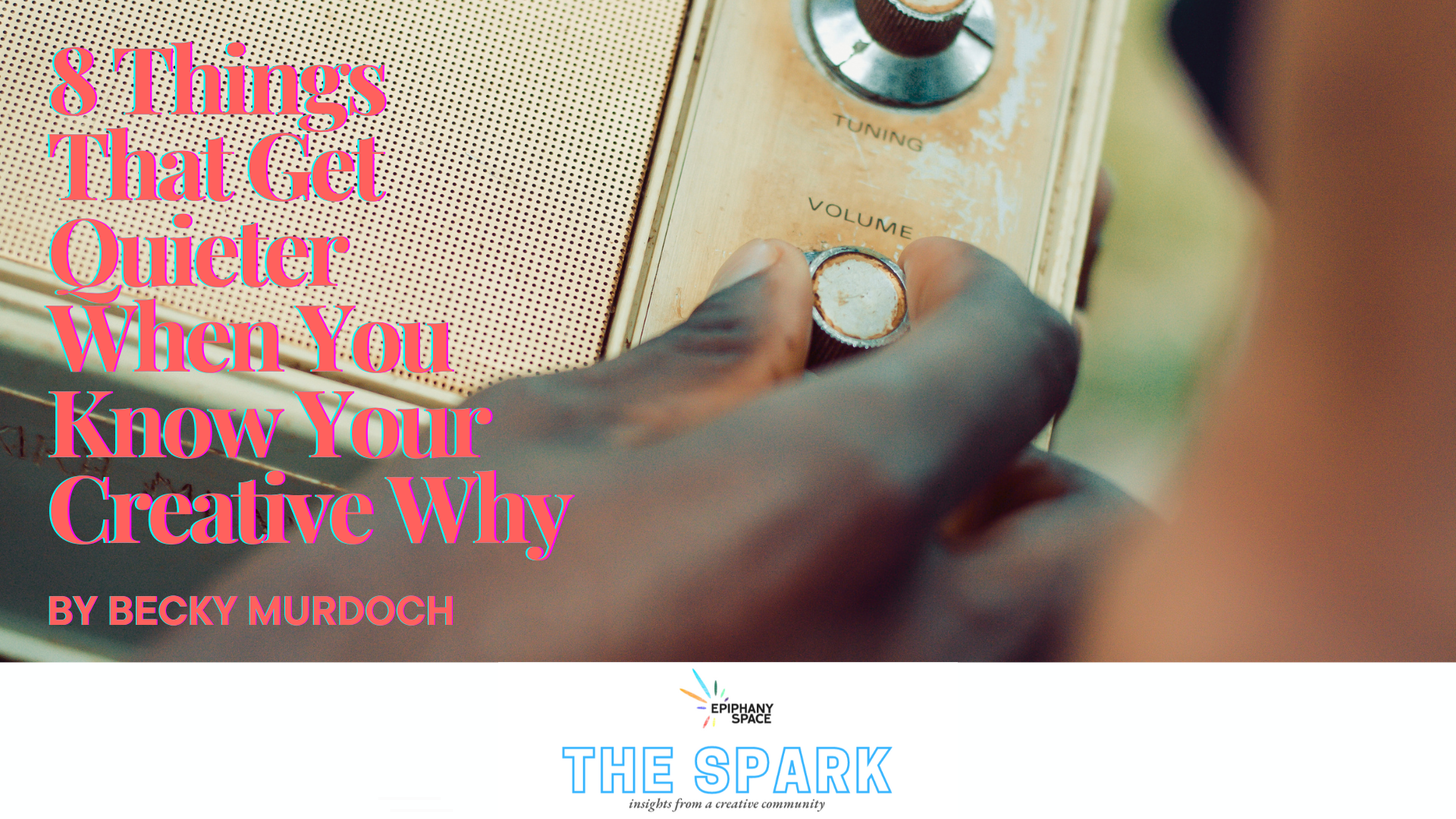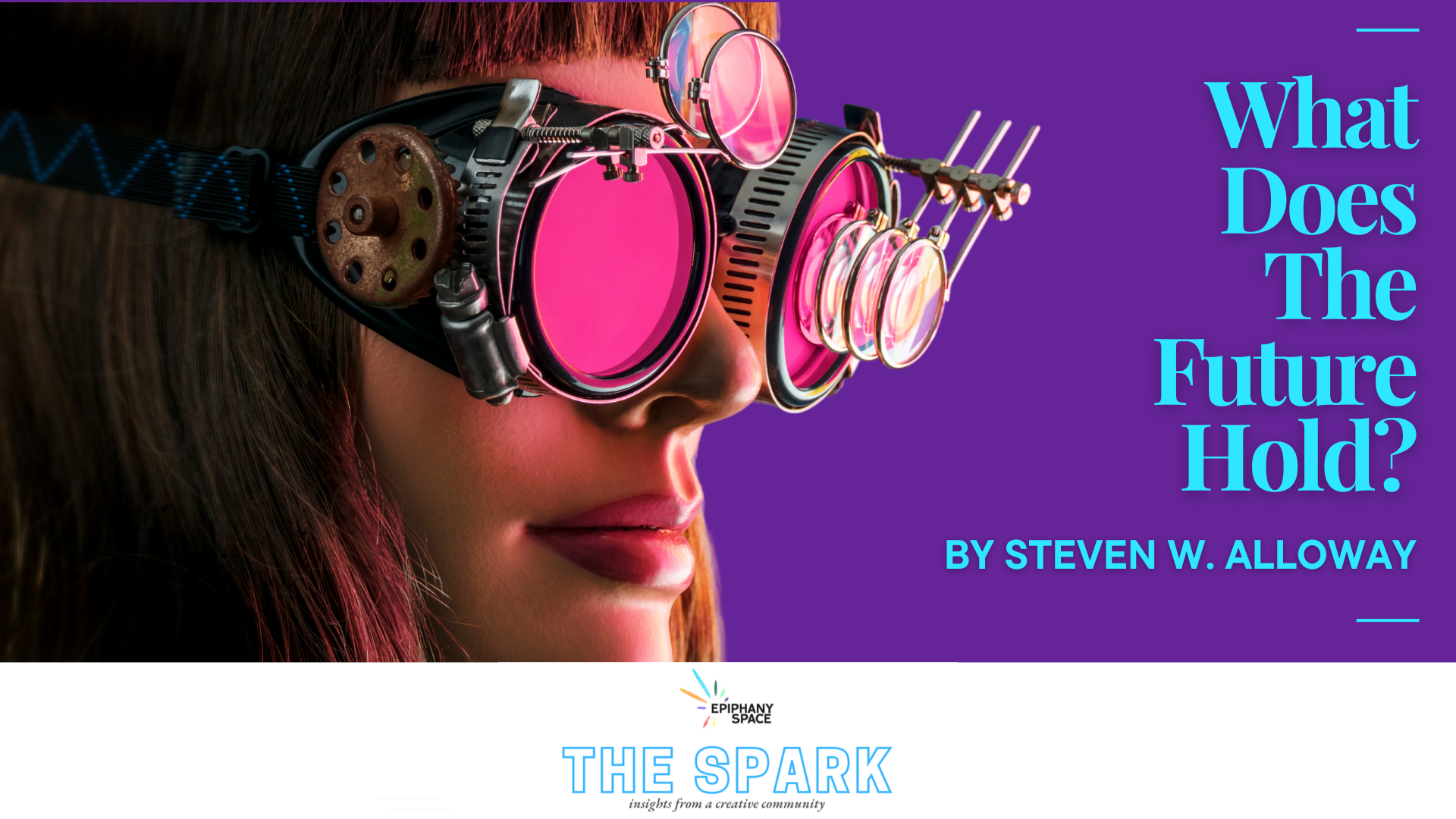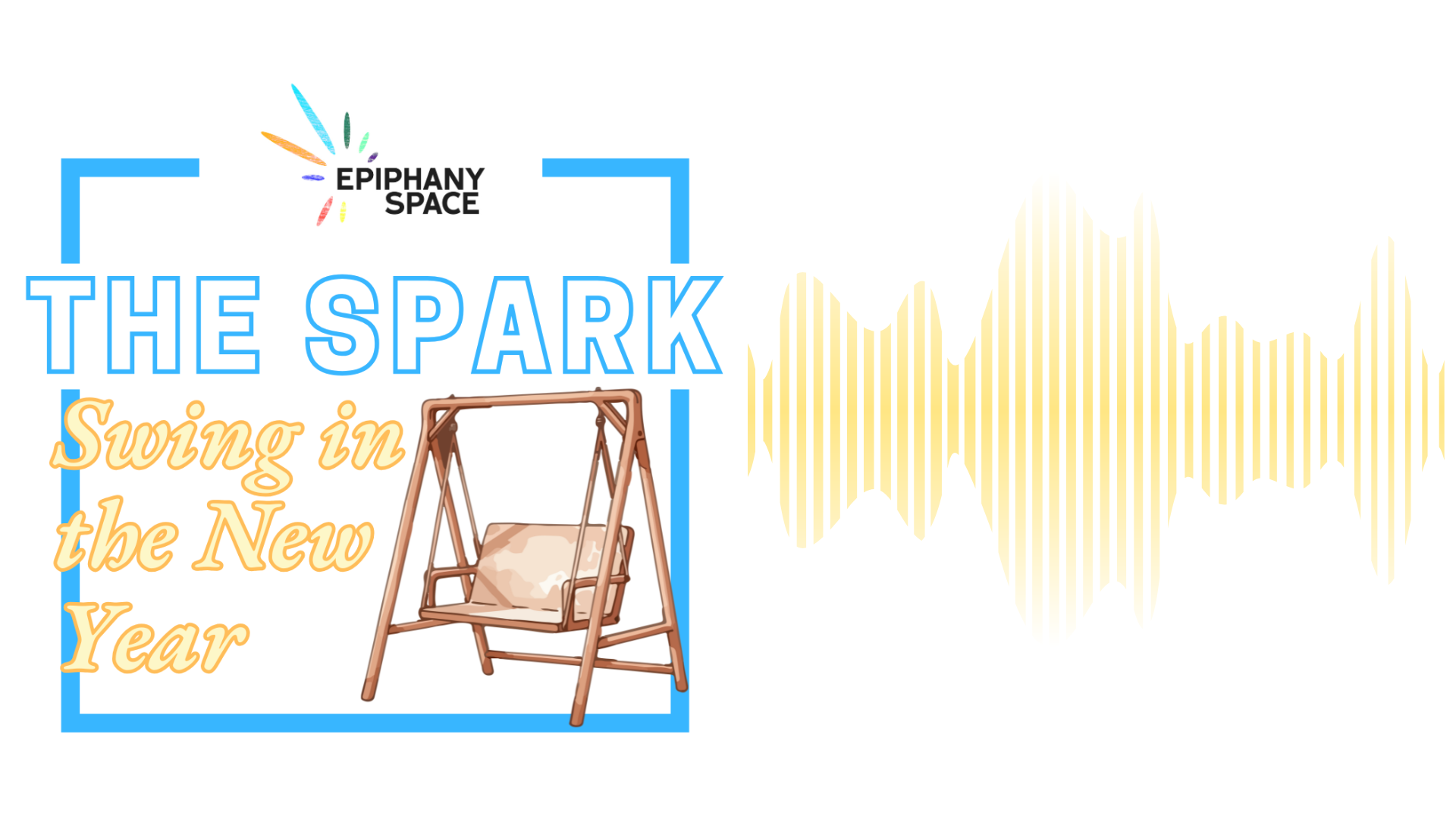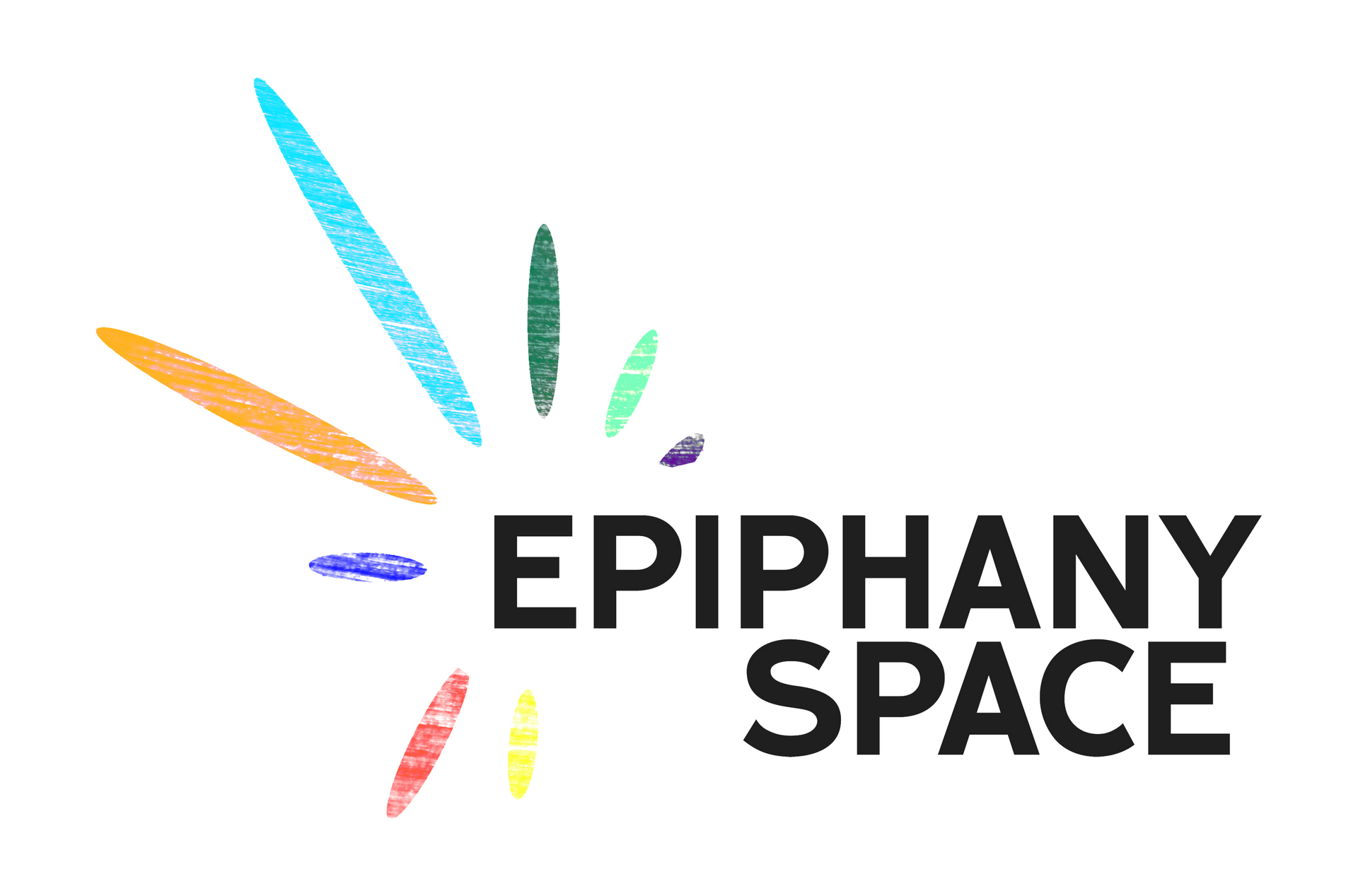Article
A Legacy of Creativity | Part 1: Past By Steven W. Alloway
A Legacy of Creativity | Part 1: Past
By Steven W. Alloway
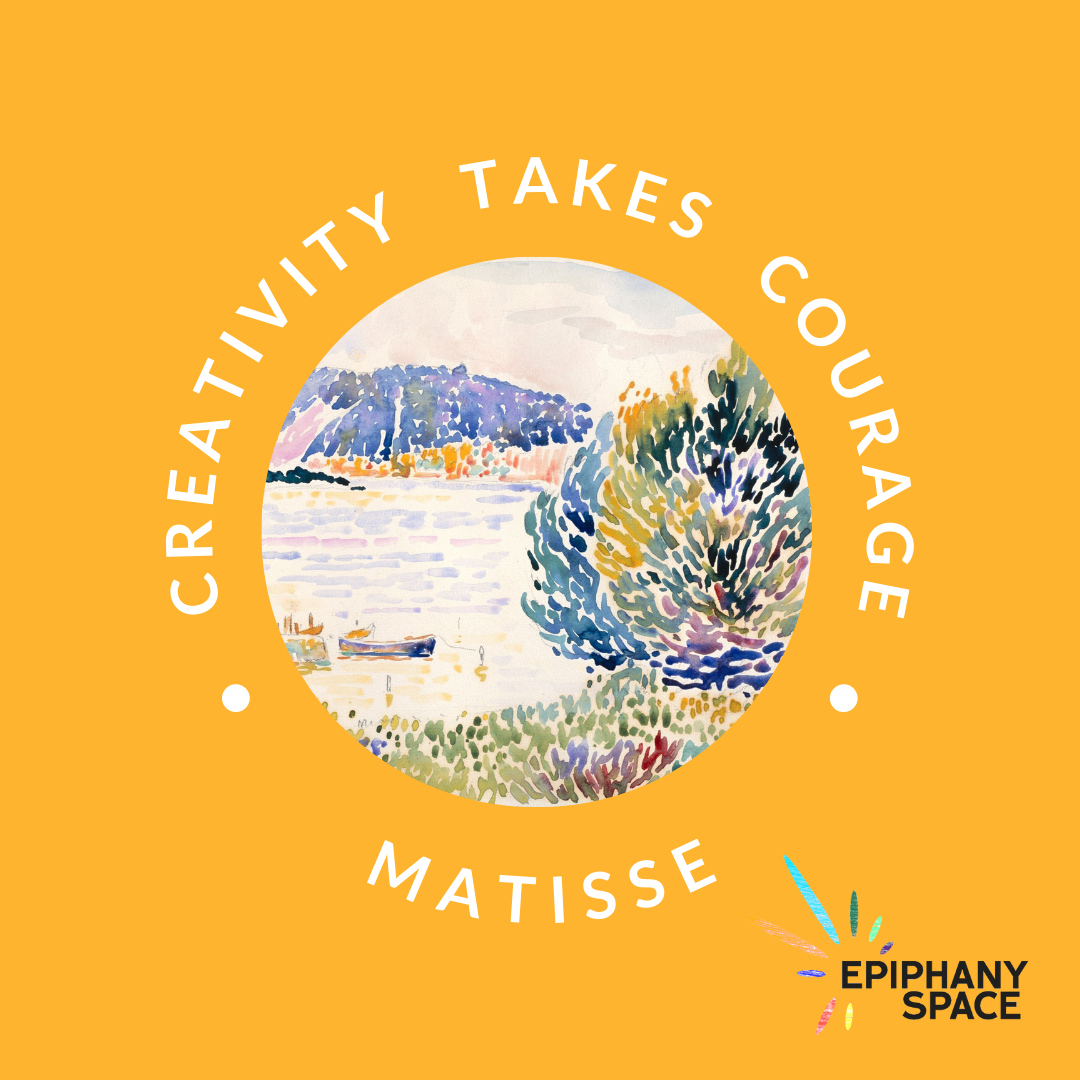
My mother is fond of telling me that I’m doomed. Perhaps an odd bit of parental wisdom, but what she means is that I come from a long line of weirdos, on both sides of my family, so there’s no escaping being a weirdo myself. And, that being the case, I’m also destined to get odd looks from so-called “normal people,” who very likely won’t understand what I’m doing or talking about a lot of the time.
Randomly quoting obscure TV and movies? Bursting into song in the middle of a conversation? Making up a song in the middle of a conversation? Turning absolutely everything into a terrible pun? If you know me, you’ve probably heard me do one or more of these things. And if you know my family… Well, then you know that my mother is right. (And if my mother were to hear me say that she’s right, she would immediately say, “Sylvia’s right?!” in mock shock, which was a gag in one of our Christmas shows, probably close to 20 years ago, and which we still quote to this day. Seriously, we are all just a bunch of weirdos.)
And it would be very easy to leave it at that. I come from a family of weirdos, and it explains how I got the way I am. But there’s more to it than that. My family isn’t just strange and silly. They’re also incredibly talented, incredibly creative people. That creativity has been a presence in my life for longer than I can remember, and it’s played a huge role in shaping who I am and what I do. So let’s take a look at that legacy of creativity, on both sides of my family, and how it made me the weirdo that I am today.
The Legacy of My Grandparents
My mother’s love of theater made her the black sheep of her conservative, Christian family. Acting? On STAGE? How could she engage in such sinful behavior?
Of course, the irony is, my grandparents, who were so adamant that she not become part of that abhorrent “actor lifestyle,” were not only the ones who inspired her love of performing, but in fact, two of the biggest hams you’ve ever met. They would write skits and record them on the family reel-to-reel tape recorder. Perhaps the most memorable was one called “The Glorious Russian Opera,” about a family who discovers that their house is on fire—and, rather than evacuating, spend all their time singing about it.
They would also perform for church functions. My grandmother would write silly songs, and my grandfather would sing them. One year, after returning home from a vacation in Florida, they did a song called “The Happy Tourist,” which was a parody of “Modern Major General” from Gilbert and Sullivan’s
Pirates of Penzance. Obviously, this was many years before I was born, but the legacy of this song remains in my mother’s family to this day, and over the years, I’ve heard bits and pieces of it sung by my mother, my grandfather, my grandmother, and at least one of my uncles.
The point being, these were more than just silly frivolities. Creating and performing these things has a significant and lasting impact on my family. They were important. They were remembered. They were part of who my grandparents were, and they helped to shape who my mother was, too. And that lasting legacy has in turn helped shape who I am as well.
The Legacy of My Mother
Talking about my mother’s life as a performer could easily be a full article unto itself. In fact, my mother already talked about her own creative legacy last month in her
Spark interview. If you want to know all about her life of creative endeavors, you should definitely read that. But I’ll just cover the highlights.
My mother started acting professionally when she was a teenager, performing in children’s theater, stage musicals, doing voiceover work, and more. She eventually decided to switch to a career in education instead. But even though she wasn’t going out on auditions or doing paid acting work, theater and performing were always a huge part of her life.
Growing up, I never knew a time when my mother wasn’t putting together some sort of theatrical endeavor. When she wasn’t doing short skits in church, she was teaching drama classes after school, or volunteering to help whoever was in charge of the school musical that year. One year, she was put in charge of choreography, which, if you know my mother at all, is… certainly a choice. But she rose to the occasion. One of the songs in the show that year was a rap song. So my middle-aged, white, conservative Christian mother spent a morning watching rap videos on BET, to come up with choreography. I don’t remember a lot about the number, but if I recall correctly, it ended up looking pretty good.
Then my parents moved my brother and me to a different school. As soon as she heard we were doing a play, she went immediately to the choir director, who was in charge of it, and offered to assist with anything he needed.
Now, at my old school, everyone knew my mother. She was a presence. She was the Drama Lady. But at this new school, she had no such reputation. And so, when she offered the choir director her services, he gave her a blank stare and said, “Ummm… Maybe you can help sew costumes?” Which, if you know my mother at all… Rap choreography may have been a challenge she could rise to, but costume seamstress was a bridge too far.
So instead, she just kept doing theater on her own, wherever and whenever she could. Eventually, she formed her own theater troupe, Spirit OnStage, and our faithful band has performed plays, musicals, variety shows, vaudeville sketches, and just about anything else you can think of, since 1997.
Not to mention the fact that, for a number of years, my mother performed as a clown. Clarissa the Clown began as a one-off school chapel performance, to teach kids about the dangers of drugs. The character quickly evolved and developed, and my mother used Clarissa to teach a variety of biblical lessons, touring schools and eventually learning a few basic magic tricks, to branch out into birthday parties and other events as well. Clarissa the Clown even performed in China.
This is the environment I grew up in, and continue to exist in to this day. I can’t conceive of a world where there isn’t some sort of theater going on. Even if there isn’t a production actively being mounted, there’s always another show to plan for, another show to help out with, another show on the horizon—if not with Spirit OnStage then with any of the half-dozen other groups we work with. Performing is as much a part of our lives as walking or breathing. That’s the legacy of creativity that my mother has built for me.
The Legacy of My Father
My father, on the other hand, was from a very different background. Before he met my mother, he’d never done any type of acting or theater—except, as he liked to tell us, for that time he conducted the band.
Back when my dad was in school, someone stopped him out of the blue one day to get his help with a project. During some sort of school function, this person wanted my dad to put on a band uniform, stand in front of the school band, and pretend to conduct them. I don’t know exactly what the reason was, and I’m not even sure my dad did either, but he complied anyway. He stood up, in front of the band and in front of the whole school, and pretended to conduct. And as far as he was concerned, that would be the entire extent of his acting experience.
Even after he met and married my mother, acting on stage was always her thing, not his. He supported her in everything she did, of course, but he was content to let her have the spotlight, and he would stay in the audience.
Which is not to say my dad didn’t do his share of performing. Just like my mother, and my grandparents, he was a born ham. When he read stories to my brother and me, he wouldn’t just do the silly voices, he’d often insert his own bits of dialogue and narration. Or, more often, he would make up his own stories to tell us, filled with his own brand of ridiculous weirdness. (One of them, “The Jack Story,” I just finished mounting as a puppet play at a theater in Burbank.)
He would also make up his own songs and sing them to us. My mother is a trained singer with a lifetime of experience in choirs. My dad did not have a classically trained voice, and in fact, he claimed he only knew the lyrics to one song: "Rudolph the Red-Nosed Reindeer". But he also had plenty of his own songs in his repertoire. Some of them consisted of nonsense words, others were about whatever we were doing in that moment, and a fair few were about hobbits. But regardless of the subject matter, he would perform them with great enthusiasm, at the drop of a hat.
So, even though my dad wasn’t a Stage Actor™, he was a performer through and through.
A Legacy on the Stage
Of course, my dad eventually started acting on the stage, too. In 1993, my mother mounted an original, full-length play called
Trouble at Sidewinder’s Gulch. It was a spoof Western melodrama featuring a meek and saintly farm girl, the dastardly villain who held the deed to her farm, and the clumsy cowboy who held the key to her heart. There was also an extended cast of other colorful characters, from a mysterious old prospector whom everyone thought was dead, to a sarcastic grandmother with a penchant for similes, to a precocious child who can’t keep from turning every story into a Tall Tale (played by a certain nine-year-old who later went on to become Epiphany Space’s Interviewer Extraordinaire).
Finding people to play all of these roles proved to be a difficult task. After casting everyone she could think of and calling in a few favors from others, there was still at least one small but important role to be filled: Cerveza, bartender at the local saloon. Well, as it happened, my dad had actually been a bartender. And so he thought maybe this was something he could do, even without Stage Actor™ experience. He volunteered to step into the role.
Before
Sidewinder’s Gulch, my dad’s only official experience performing was conducting that band when he was in school. But as it turned out, he was a natural. My dad was great in the play, bringing his own brand of silliness to the role. His character wore an eye patch, and during intermission, he switched eyes, just to see if anyone would notice. And in fact, he ended up playing two different roles. In addition to the bartender, he also played the offstage voice of the farm girl’s faithful cow. It was supposed to consist of mooing sounds. Instead, my dad just said the word, “Moo!” And it was one of the funniest things in the play.
And the rest, as they say, is history. My dad kept acting in more and more shows. And despite his continual insistence that he was not really an actor, and only did it to help my mother (and later me), he never failed to steal the show in any scene he was in.
There was the time I had to cast him, at the very last minute, in a Shakespeare play, despite his not liking or understanding Shakespeare, in a role that consisted largely of faux Latin, and with only two rehearsals, he ended up being one of the best actors in the whole show. Or the time, in one of our Christmas shows, that we cast him as the Partridge in a Pear Tree, and he provided a hilarious pseudo-partridge impression that consisted of spinning around saying, “Awk! Awk!” Not to mention the fact that my dad has the distinction of having once played the comic relief in a recreation of Orson Welles’
War of the Worlds broadcast. “But there’s no comic relief in Orson Welles’
War of the Worlds!” you might be saying. Well, there was the way he did it.
Earlier, I said that I could write a whole article just about my mother’s creative legacy of performing. I’m realizing now that I could do a whole article on my dad’s legacy, too. And perhaps at some point I will. We’ve only just scratched the surface here. There are so many great stories that are worth telling. But for now, suffice it to say, my dad had an incredible creative legacy that continues to have an impact on my life to this day. And he was an absolute weirdo, to boot.
The Legacy of My Brother
This article wouldn’t be complete without talking about the creative legacy of one other member of my family: my brother. My brother died in 1995, so he never got to be part of Spirit OnStage or join the group of crazy weirdos that sit in our living room planning our shows while trading obscure pop culture references and threatening to throw snack foods at whoever makes a terrible pun (usually me). But while he was alive, he was a huge part of our family’s performing legacy.
Of course, he was in all the school plays. That was a matter of course—whether he was playing a weed trying to come up with as many bad words as possible (“Pasta Fazool!”), a homeless kid left out of a church potluck, an eccentric scientist, or a pessimistic bee. He got cast whether my mother was helping out with the show or not, simply because he was a talented actor and singer.
And of course, he would help out with my mother’s plays too. Like the rest of our family, he was in
Trouble at Sidewinder’s Gulch, playing one of the villain’s henchmen, who was simultaneously both dumber and smarter than everyone else in the room.
But my brother also liked to help out behind the scenes. If he wasn’t in the play, chances were, he was running the soundboard or doing other tech stuff. Which allowed him to carry on our family’s creative legacy in a different way.
The Legacy Comes Full Circle
My mother grew up recording stories on her parents’ reel-to-reel tape recorder. My brother and I grew up recording what we called
The Alloway Christmas Tape. Every year, throughout the year, our family would record ourselves on a cassette, talking about the cool and interesting things we were doing. Steven learns to ride a bike? We talk about it on the tape. Matthew sings a solo in the school play? He also sings it on the tape. The family goes to a fair where mom and dad get a cool new pepper grinder and Steven develops a lifelong love of RVs? We talk about it on the tape. We’d intersperse it with songs, jokes, and silly bits, and at the end of the year, we’d make copies to send to relatives and close friends, much like a Christmas letter.
With my brother’s tech-savvy, he soon became the Christmas Tape Guru. He’d edit it, assembling a cohesive structure out of all the individual bits, getting multiple takes when something didn’t quite sound right, and even recording room tone. And he would also include a play.
A huge lover of old-time radio drama, my brother would write short audio plays for the whole family to perform on the tape. One year, he did
The Emperor’s New Clothes. The next year, it was an obscure Grimm fairy tale called,
The Mouse, the Bird, and the Sausage
(which he changed to,
The Squirrel, the Bird, and the Sausage at the insistence of my dad, who hated mice). In that one, my brother played the role of a talking sausage, who only says, “Gloob”—but manages to make it mean whatever he needs to communicate. Before Vin Diesel had “I Am Groot,” my brother had “Gloob.”
A year after that, my brother did an epic, four-part adaptation of
A Christmas Carol, with himself in the role of Scrooge. That was 1994. I don’t remember what he had planned for 1995, and sadly, we never got to see it come to fruition, as that was the year he died. His creative legacy, however, lives on.
This was the environment I grew up in. An environment where, whether or not they were an Actor™ or a Writer™, everyone performed and everyone told stories. And everyone was totally, inescapably, unapologetically weird. The legacy runs deep. So I guess what my mother said is true: I’m doomed.
But what does that doom look like? How have I carried on that creative legacy that’s been ingrained in me my whole life? I’ll explore that in my next Spark Article, “A Legacy of Creativity Part 2: Present.” Stay tuned!

